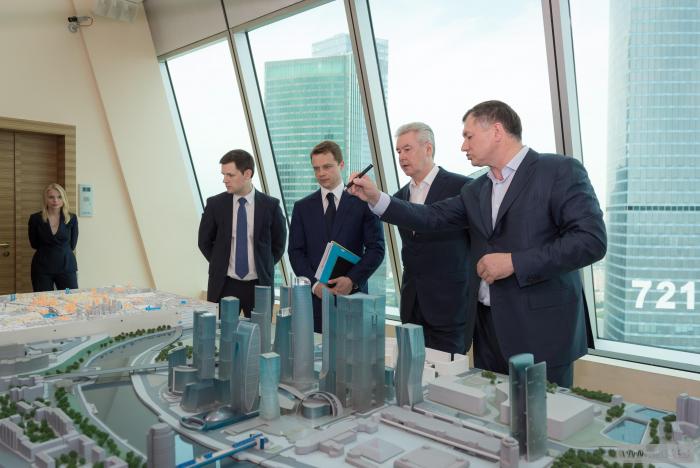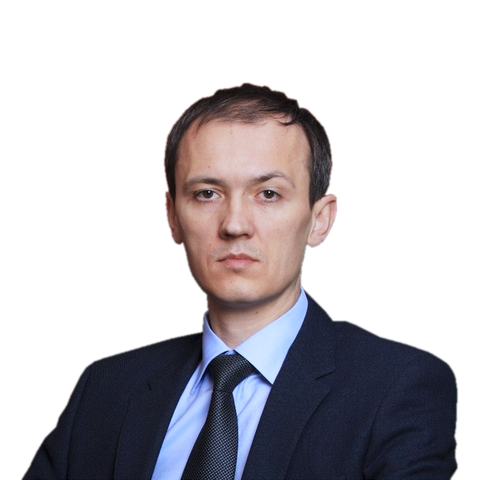|
Marat Khusnullin
Marat Shakirzyanovich Khusnullin tt-Cyrl, –ú–į—Ä–į—ā –®–į–ļ–ł—Ä“ó–į–Ĺ —É–Ľ—č –•”©—Ā–Ĺ—É–Ľ–Ľ–ł–Ĺ, translit=Marat ҆akirŠļďŐĆan uly H√īsnullin (born 9 August 1966) is a Russian Tatars, Tatar politician serving as Deputy Prime Minister of Russia for Construction and Regional Development since 2020. He previously served as Deputy Mayor of Moscow from 2010 to 2020. Early life and education Marat was born in 1966 in Kazan, in what was then the Tatar Autonomous Soviet Socialist Republic of the Soviet Union. His mother Roza (or Rosa) Garafutdinovna Khusnullina (russian: –†–ĺ–∑–į –ď–į—Ä–į—Ą—É—ā–ī–ł–Ĺ–ĺ–≤–Ĺ–į –•—É—Ā–Ĺ—É–Ľ–Ľ–ł–Ĺ–į; born 1944) is a British citizen, through whom he often has as a nominal agent for the ownership of his wealth. In 1990 he graduated from Kazan State Finance and Economics Institute with a degree economics. He continued his postgraduate education at the Open University, graduating with a degree in Professional Management. In 2006, he obtained a Candidate of Scie ... [...More Info...] [...Related Items...] OR: [Wikipedia] [Google] [Baidu] |
Deputy Prime Minister Of Russia
A Deputy Chairman of the Government of the Russian Federation (russian: –ó–į–ľ–Ķ—Ā—ā–ł—ā–Ķ–Ľ—Ć –Ņ—Ä–Ķ–ī—Ā–Ķ–ī–į—ā–Ķ–Ľ—Ź –ü—Ä–į–≤–ł—ā–Ķ–Ľ—Ć—Ā—ā–≤–į –†–ĺ—Ā—Ā–ł–Ļ—Ā–ļ–ĺ–Ļ –§–Ķ–ī–Ķ—Ä–į—Ü–ł–ł) is a member of the Government of Russia. The post is commonly referred to as "deputy prime minister" both in and outside of Russia. According to the Chapter 6, Article 110 of the Constitution of Russia, "The Government of the Russian Federation consists of the chairman of the Government of the Russian Federation, ''Deputy Chairman of the Government of the Russian Federation'' and federal ministries". Article 112 states that the Chairman of the Government (Prime Minister) recommends candidates for the post of deputy chairmen to the President of Russia. The role of deputy chairmen of government of the Russian Federation is to coordinate the activities of federal government bodies and carry out other tasks in response to particular issues or events. The most senior of them is the First Deputy Prim ... [...More Info...] [...Related Items...] OR: [Wikipedia] [Google] [Baidu] |
Meduza
''Meduza'' ( rus, –ú–Ķ–ī—É–∑–į, t=jellyfish) is a Russian- and English-language independent news website, headquartered in Riga. It was founded in 2014 by a group of former employees of the then-independent ''Lenta.ru'' news website. Free mobile applications for iOS, Windows Phone and Android became the basis of the media. A semi-official motto of the portal is "Make the Kremlin sad". History In 2014, Galina Timchenko was fired from her job as chief editor at ''Lenta.ru'' by oligarch Alexander Mamut, a supporter of Vladimir Putin, after she had interviewed Right Sector. She launched the new webpage ''Meduza'' in October 2014. Several former journalists of ''Lenta.ru'' joined the new online site. Timchenko told ''Forbes'' that the decision to base ''Meduza'' in Latvia was made since "right now, establishing an independent Russian language publishing house in Latvia is possible, while in Russia it is not". Moreover, Timchenko stated: "We understood that in Russia, most like ... [...More Info...] [...Related Items...] OR: [Wikipedia] [Google] [Baidu] |
Zyablikovo (Moscow Metro)
Zyablikovo (russian: –ó—ŹŐĀ–Ī–Ľ–ł–ļ–ĺ–≤–ĺ) is a Moscow Metro station in the Zyablikovo District, Southern Administrative Okrug, Moscow. It is located on the Lyublinsko-Dmitrovskaya Line serving as its southern terminus. The station opened on 2 December 2011. Zyablikovo is a transfer station to Krasnogvardeyskaya of the Zamoskvoretskaya Line. At the time of opening the transfer, both Krasnogvardeyskaya and Zyablikovo were the terminal stations on their respective lines. The station is located in the southern part of Moscow, on the border of Zyablikovo and Orekhovo-Borisovo Yuzhnoye districts. There is a track connection to the Zamoskvoretskaya Line south of this station, where Lyublinsko-Dmitrovskaya Line trains terminate. Name The station is named after the village of Zyablikovo, formerly located to the south of the station, which in 1960s became part of Moscow Moscow ( , US chiefly ; rus, links=no, –ú–ĺ—Ā–ļ–≤–į, r=Moskva, p=m…źskňąva, a=–ú–ĺ—Ā–ļ–≤–į.ogg) is the ... [...More Info...] [...Related Items...] OR: [Wikipedia] [Google] [Baidu] |
Shipilovskaya
Shipilovskaya (russian: –®–ł–Ņ–łŐĀ–Ľ–ĺ–≤—Ā–ļ–į—Ź) is a Moscow Metro station in the Zyablikovo District, Southern Administrative Okrug, Moscow. It is on the Lyublinsko-Dmitrovskaya Line, between Borisovo and Zyablikovo stations. Shipilovskaya opened on 2 December 2011. Name The station is named after Shipilovskaya street, near the station, which is named after Shipilovo, a small village located here before the area became part of Moscow Moscow ( , US chiefly ; rus, links=no, –ú–ĺ—Ā–ļ–≤–į, r=Moskva, p=m…źskňąva, a=–ú–ĺ—Ā–ļ–≤–į.ogg) is the capital and largest city of Russia. The city stands on the Moskva River in Central Russia, with a population estimated at 13.0 millio ... in 1966. This village was here since the 16th century and its name is connected with Russian personal first name Shipil (sometimes Shipilo). History In the Soviet era, the Moscow government planned to construct a metro line in South-East Moscow in the beginning of the second half of the 20th c ... [...More Info...] [...Related Items...] OR: [Wikipedia] [Google] [Baidu] |
Borisovo (Moscow Metro)
Borisovo (russian: –Ď–ĺ—Ä–łŐĀ—Ā–ĺ–≤–ĺ) is a Moscow Metro station in the Brateyevo District, Southern Administrative Okrug in Moscow. It is on the Lyublinsko-Dmitrovskaya Line, between Maryino and Shipilovskaya stations. Borisovo was opened on December 2, 2011 along with the stations Maryino and Zyablikovo. Name At the beginning, until 1989, the station had its project name set as Brateyevo. In 1996, the Government of Moscow enacted a new name Borisovo after a former village located in the West and South-West, not far from the constructed metro station. The resolution set the name Brateyevo to a projected station initially called Promzona, however during the construction, Promzona was renamed as Alma-Atinskaya. According to RIA Novosti, since January 1, 2011, the city authorities were supposed to rename the station Borisovo as Kazakhnskaya. In return, the Almaty Metro in Kazakhstan should have had a station Moskovskaya. Nevertheless, Borisovo's name remained unchanged. The H ... [...More Info...] [...Related Items...] OR: [Wikipedia] [Google] [Baidu] |
Moscow Metro
The Moscow Metro) is a metro system serving the Russian capital of Moscow as well as the neighbouring cities of Krasnogorsk, Reutov, Lyubertsy and Kotelniki in Moscow Oblast. Opened in 1935 with one line and 13 stations, it was the first underground railway system in the Soviet Union. , the Moscow Metro, excluding the Moscow Central Circle, the Moscow Central Diameters and the Moscow Monorail, has 250 stations (287 with Moscow Central Circle) and its route length is , making it the fifth-longest in the world and the longest outside China. The system is mostly underground, with the deepest section underground at the Park Pobedy station, one of the world's deepest underground stations. It is the busiest metro system in Europe, and is considered a tourist attraction in itself. Operations The Moscow Metro, a state-owned enterprise, is long and consists of 15 lines and 250 stations organized in a spoke-hub distribution paradigm, with the majority of rail lines running radia ... [...More Info...] [...Related Items...] OR: [Wikipedia] [Google] [Baidu] |
2013 Summer Universiade
The 2013 Summer Universiade, officially known as the XXVII Summer Universiade (russian: XXVII –õ–Ķ—ā–Ĺ—Ź—Ź –£–Ĺ–ł–≤–Ķ—Ä—Ā–ł–į–ī–į), was held in the city of Kazan, Russia, the most northerly city ever to host a Summer Universiade. Over 10,400 university athletes from 162 countries participated in 13 mandatory and 14 optional sports, making the 2013 Universiade the biggest ever in the history of the event. For the first time in history a Cultural Universiade was also included, with many festivals and shows held simultaneously with the sporting events. The Universiade was organized by the International University Sports Federation (FISU) and by the authorities of the Russian Federation. Bidding process Kazan had bid twice for the Universiade; the first attempt was for the 2011 Summer Universiade, but Kazan lost to Shenzhen by just two votes. The city applied again for the 2013 Summer Universiade, and won the right to host the Universiade. The games Transportation Prior to the U ... [...More Info...] [...Related Items...] OR: [Wikipedia] [Google] [Baidu] |
Almetyevsk
Almetyevsk ( rus, –ź–Ľ—Ć–ľ–ĶŐĀ—ā—Ć–Ķ–≤—Ā–ļ, , …źl ≤ňąm ≤et ≤j…™fsk; tt-Cyrl, ”ė–Ľ–ľ”ô—ā, ''√Ąlm√§t'') is a city in the Republic of Tatarstan, Russia, located on the left bank of the Zay River (Kama's tributary) southeast of Kazan. Population: 77,000 (1969); 49,000 (1959). Unofficial cycling capital of Russia. History Almetyevsk is one of the youngest cities in the republic. Located along the federal highway (russian: –į–≤—ā–ĺ—ā—Ä–į—Ā—Ā–į —Ą–Ķ–ī–Ķ—Ä–į–Ľ—Ć–Ĺ–ĺ–≥–ĺ –∑–Ĺ–į—á–Ķ–Ĺ–ł—Ź) R239 "Orenburgsky" Kazan - Orenburg (in Cyrillic P239 (russian: "–ě—Ä–Ķ–Ĺ–Ī—É—Ä–≥—Ā–ļ–ł–Ļ"), it was founded as an oil-processing settlement northwest of the Almetyevskaya railway station (79 km marker) on the Kuybyshev Railway near Leninogorsk and the Akbash (Bugulminsky District) - Agryz railway line and was granted town status in 1953. Administrative and municipal status Within the framework of administrative divisions, Almetyevsk serves as the administrative center of Almetyevsky Di ... [...More Info...] [...Related Items...] OR: [Wikipedia] [Google] [Baidu] |
Elabuga
Yelabuga (alternative spelling that reflects the Cyrillic spelling: Elabuga; russian: –ē–Ľ–į–Ī—É–≥–į; tt-Cyrl, –ź–Ľ–į–Ī—É–≥–į, ''Alabuńüa'') is a town in the Republic of Tatarstan, Russia, located on the right bank of the Kama River and east from Kazan. Population: Geography Climate History The former name of the city was Alabuga. Its history dates back to the 10th century, when a Volga Bulgar border castle, the so-called Alamir-Sultan castle was built by Bulgar Khan Ibrahim in 985 CE. The castle was built on the place of the legendary tomb of Alamir-Sultan (Alexander the Great "Macedonian"). The name 'Alabuga' originally referred to the tower of the castle, later the whole city was named Alabuga. The castle was later abandoned, and its remains are now known as ''Ňěaytan qalasńĪ'' ( Shaytan's castle). In the second half of the 16th century, a Russian village was founded on the same spot. Administrative and municipal status Within the framework of administrative di ... [...More Info...] [...Related Items...] OR: [Wikipedia] [Google] [Baidu] |
Nizhnekamsk
Nizhnekamsk ( rus, –Ě–ł–∂–Ĺ–Ķ–ļ–į–ľ—Ā–ļ, p=n ≤…™ źn ≤…™ňąkamsk; tt-Cyrl, –Ę“Į–Ī”ô–Ĺ –ö–į–ľ–į, ''T√ľb√§n Qama'') is a city in Tatarstan, Russia, located to the south of the Kama River between the cities of Naberezhnye Chelny and Chistopol. Population: History It was founded in 1961 as the work settlement of Nizhnekamsk (). As its population increased, spurred by the construction of Nizhnekamskneftekhim petrochemical industrial complex, Nizhnekamsk was granted city status in 1966. Sightseeings - Musa Jalil Park; - "Maydan" - the place where the town festivals are held; - the famous Holy Spring; - "Neftehimik" ice hockey hall; - the museum of the town. Administrative and municipal status Within the framework of administrative divisions, Nizhnekamsk serves as the administrative center of Nizhnekamsky District, even though it is not a part of it.Order #01-02/9 As an administrative division, it is, together with three rural localities, incorporated separately as the city of rep ... [...More Info...] [...Related Items...] OR: [Wikipedia] [Google] [Baidu] |
Naberezhnye Chelny
Naberezhnye Chelny ( rus, –Ě–įŐĀ–Ī–Ķ—Ä–Ķ–∂–Ĺ—č–Ķ –ß–Ķ–Ľ–Ĺ—čŐĀ, p=ňąnab ≤…™r ≤…™ źn…®j…ô t…ē…™lňąn…®; tt-Cyrl, –Į—Ä –ß–į–Ľ–Ľ—č, ''Yar √áallńĪ'', IPA: ąjar …ē…Ďlňź…§ŐÜ is the second largest city in the Republic of Tatarstan, Russia. A major industrial center, Naberezhnye Chelny stands on the Kama River east of Kazan near Nizhnekamsk Reservoir. Population: The city was briefly known as ''Brezhnev'' from 1982 until 1988. History Naberezhnye Chelny was granted town status on August 10, 1930, and was called Brezhnev (after Leonid Brezhnev) from 1982 to 1988. The city of Naberezhnye Chelny was one of the residence centers of the Udmurt Jews, who spoke Udmurtish Yiddish.Altyntsev A.V., "The Concept of Love in Ashkenazim of Udmurtia and Tatarstan", Nauka Udmurtii. 2013. No. 4 (66), p. 131. (–ź–Ľ—ā—č–Ĺ—Ü–Ķ–≤ –ź.–í."–ß—É–≤—Ā—ā–≤–ĺ –Ľ—é–Ī–≤–ł –≤ –Ņ–ĺ–Ĺ–ł–ľ–į–Ĺ–ł–ł –Ķ–≤—Ä–Ķ–Ķ–≤-–į—ą–ļ–Ķ–Ĺ–į–∑–ł –£–ī–ľ—É—Ä—ā–ł–ł –ł –Ę–į—ā–į—Ä—Ā—ā–į–Ĺ–į".–Ě–į—É–ļ–į –£–ī–ľ—É—Ä—ā–ł–ł. 2013. ‚ĄĖ4. –°. 1 ... [...More Info...] [...Related Items...] OR: [Wikipedia] [Google] [Baidu] |




_(1975).png)